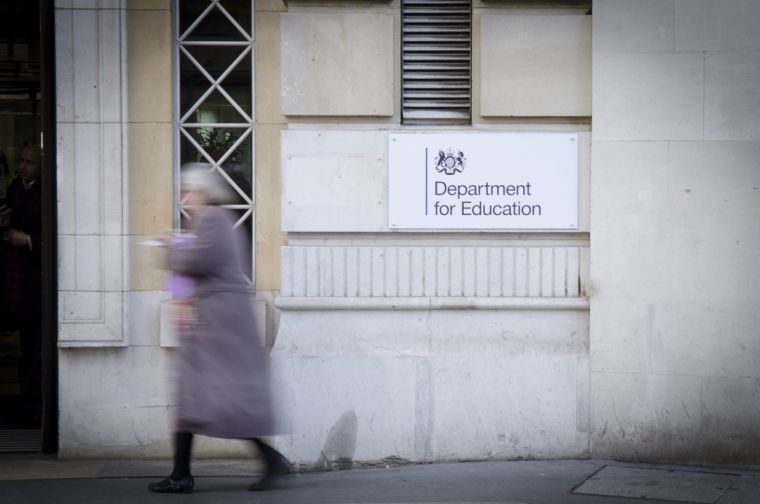Britain's hidden education crisis

Not only do we have our third prime minister in two months, we have our fifth education secretary this year. Last Monday, the new Ministers for the Education Department faced their first oral question time with MPs in the Commons. By the end of the week, just one of the five was still in place. So I want to talk about the hidden issue: education.
The headline-grabbing instability of our current government hides a real and growing crisis in our education system.
This week I met with a group of headteachers in my constituency. All of them were approaching despair over their schools' financial plight and the horrific decisions they now need to make – including every one of them having to lose staff.
By 2025, spending per pupil will still be lower than it was in 2010, and a recent survey by the National Association of Head Teachers found that 90 per cent of state schools in England will run out of money by the end of next school year.
The government agreed to welcome pay rises for teachers this year, but then didn't give schools the money they needed to fund this. Neither were schools given additional funds to cover the quadrupling of energy bills. Schools are seeing a rise in children with special needs, but no rise in the money they need to support them. Add this to the lost income endured during Covid, you will see why my local heads are so anxious.
Teachers see firsthand an increase in social, emotional and mental health needs among children who've had their lives hugely disrupted over the last three years. School closures and subsequent disruption led to limited socialization and greatly decreased resilience for learning, and even for coping in a school environment.
Poorer children are falling further behind. Absence rates since Covid closures mean there are thousands of 'lost' children no longer attending school regularly.
Teachers and support staff are drained: by the Covid fall-out, increasing behavioural challenges, and the prospect of cutting essential staff to balance the books.
A National Education Union survey of its members has found that an astonishing 44% of state school teachers in England plan to quit the profession in the next five years. The teaching profession is collectively exhausted.
Yet an opinion piece by James Forsyth in this week's Sunday Times suggested that education is simply not a focus for the government or main opposition, partly because only 8% of the general public think that education is a priority issue, and perhaps because there are simply more votes in promising money to older people.
But how can Britain produce an educated workforce for the next generation if we are not investing in our schools now? The main concern of the headteachers I spoke to was for the long-term futures of their children – they know it is the children who will suffer from these cuts.
Children are often invisible in politics – they don't vote and very often don't have a voice in the issues that concern us as a nation. Yet they are some of the most vulnerable in society. We know Jesus has a heart for our young people – 'let the little children come to me', he said to the disciples trying to turn them away.
Psalm 127:3 says (in the Message): "Don't you see that children are God's best gift?" Parents, teachers and government all have a huge responsibility: to teach our children to become responsible citizens, to build them up as people of good character, to enable them to thrive. Schools are often safe places for children who may not have a secure home life – they are taught values that underpin our society.
This is such important work, and as a nation we need to treasure it so much more than we do.
How can Christians respond? Firstly let's pray for everyone working in our schools – as teachers, senior leaders, support staff, school governors and others, as they battle low morale, high need and impossible financial decisions.
If you have school age children, think about offering words of encouragement to their teachers, and fundraising for your school. Parent associations are increasingly paying for essential items such as books.
There are many Christians serving in education, and let's pray for them to be salt and light in these communities – offering support to their colleagues and a glimpse of the hope and security that only Jesus can bring.
If you are concerned by issues facing schools in your area, then write to your local MP. And please pray for wise decisions by the Chancellor and his team, making difficult choices for the financial statement later this month. Pray that they will recognize the value of our schools, the worth of their staff and the importance of properly supporting the education and future of the next generation.
Tim Farron has been the Member of Parliament for Westmorland and Lonsdale since 2005, and served as the Leader of the Liberal Democrat Party from 2015 to 2017.Tim is also the host of Premier's 'A Mucky Business' podcast. His new book A Mucky Business: Why Christians should get involved in politics is published in November.











